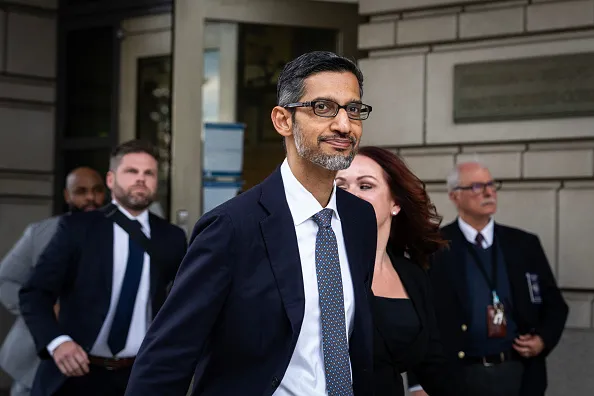Dive Brief:
- Browser companies like Apple and Mozilla would be able to strike licensing deals to make Google their default search provider, as they do now, but those deals wouldn’t prevent them from striking deals to make other search providers the default on other devices, Google says in a proposal it filed with a federal court.
- By letting companies enter into these other agreements, Google says, it’s offering the kind of remedy that would address its practices that the federal district court in the District of Columbia last year said created an illegal monopoly.
- “This is a case about contracts,” Lee-Anne Mulholland, Google’s vice president of regulatory affairs, says in a blog post she posted just before the holidays, when the company filed its proposed remedy. “Antitrust law is clear that remedies should be directed to those contracts.”
Dive Insight:
Google filed its proposed remedies Dec. 20 in response to the court’s decision in August that the company was acting as an illegal monopoly because of deals it made requiring companies to make its search and search-ad functions the default in their browsers and on their devices.
Under these deals, a company like Apple would earn billions of dollars annually by making Google its default search engine across all of its devices, including its mobile devices like the iPhone and iPad. Google is now saying its agreements to be the default search engine in a browser won’t require that default status to extend across devices.
“Browser companies like Apple and Mozilla should continue to have the freedom to do deals with whatever search engine they think is best for their users,” Mulholland said. “Our proposal allows browsers to continue to offer Google Search to their users and earn revenue from that partnership. But it also . . . would allow for multiple default agreements across different platforms . . . and browsing modes.”
Google is also proposing that its search deals only last 12 months, and it will allow companies to preload multiple search engines, not just Google’s, onto their devices. And companies can preload any Google app on their devices without having to first preload Google’s search function or its Chrome browser, as it now requires.
“We don’t propose these changes lightly,” Mulholland said. “They would come at a cost to our partners by regulating how they must go about picking the best search engine for their customers.”
Response to DOJ
Google’s proposal is a stark contrast to what DOJ proposed in November. The agency called for a broader approach that includes a big structural change — forcing the company to spin off its Chrome business — because of the way that business goes into making Google’s search and search-ad functions dominant.
“Restoring competition to the markets for general search and search text advertising as they exist today will require reactivating the competitive process that Google has long stifled,” DOJ said in its proposal.
In addition to calling for the divestiture of Chrome, DOJ says Google needs to stop entering into agreements that preference its search function on third-party devices. It also needs to license its search and ad data to rivals and have a big part of its operations overseen by an outside technical committee.
The agency also said it would come back with an additional structural remedy — requiring the company to spin off its Android business — if that’s seen as needed to even the playing field if this first batch of remedies doesn’t do the trick.
“If [the remedies] ultimately fail to achieve the high standards for meaningful relief in these critical markets,” the agency said, “the Court could require return to the [Android divestiture] option.”
Judge Amit Mehta of the D.C. federal district court asked Google and DOJ to tell him what they think the remedies should be so he can factor that in when he holds a hearing in April on what changes are needed in Google’s practices to end its search and search-ad monopolies. He’s expected to make his decision on the remedies in the fall.
Regardless of what he comes up with, Google has said it will appeal Mehta’s decision that found the company to be operating as a monopoly.
“This process will likely take many years,” Sundar Pichai, CEO of Google and its parent company Alphabet, said in October. “I’m confident … we’ll do well in the long run.”
It’s not clear how DOJ under Donald Trump, when he assumes the presidency later this month, will change the calculus.
The agency could decide to soften its stance at the April hearing by backing off its call for the divestiture of Chrome and its proposal for Google to share its search data with rivals, which some antitrust attorneys have said might be one of the most important remedies, and focus instead on the kind of reform to the agreements that Google is proposing.
Gail Slater, who Trump has named to head up DOJ’s antitrust division, has a record of going after technology companies from her days as an antitrust attorney at the Federal Trade Commission. But Trump has said he’s unlikely to call for the kind of structural change to Google that DOJ under President Joe Biden has proposed.
“It’s a very dangerous thing,” Trump said last year when asked about forcing divestitures on Google while he was running for office. “We want to have great companies — we don’t want China to have these companies. Right now, China is afraid of Google.”

